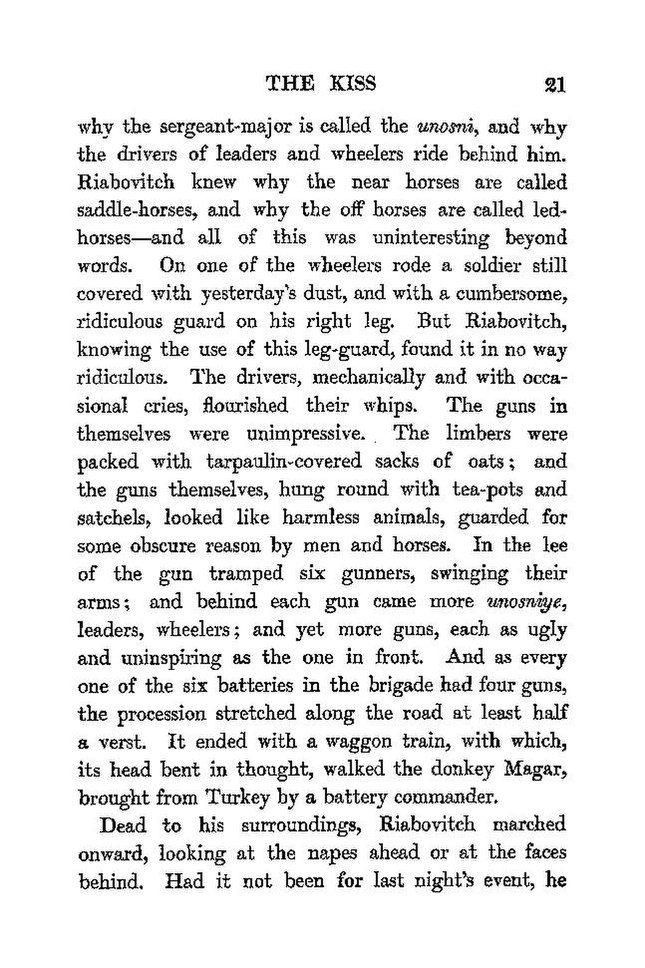why the sergeant-major is called the unosni, and why the drivers of leaders and wheelers ride behind him. Riabovitch knew why the near horses are called saddle-horses, and why the off horses are called led-horses — and all of this was uninteresting beyond words. On one of the wheelers rode a soldier still covered with yesterday's dust, and with a cumbersome, ridiculous guard on his right leg. But Riabovitch, knowing the use of this leg-guard, found it in no way ridiculous. The drivers, mechanically and with occasional cries, flourished their whips. The guns in themselves were unimpressive. The limbers were packed with tarpaulin-covered sacks of oats; and the guns themselves, hung round with tea-pots and satchels, looked like harmless animals, guarded for some obscure reason by men and horses. In the lee of the gun tramped six gunners, swinging their arms; and behind each gun came more unosniye, leaders, wheelers; and yet more guns, each as ugly and uninspiring as the one in front. And as every one of the six batteries in the brigade had four guns, the procession stretched along the road at least half a verst. It ended with a waggon train, with which, its head bent in thought, walked the donkey Magar, brought from Turkey by a battery commander.
Dead to his surroundings, Riabovitch marched onward, looking at the napes ahead or at the faces behind. Had it not been for last night's event, he
